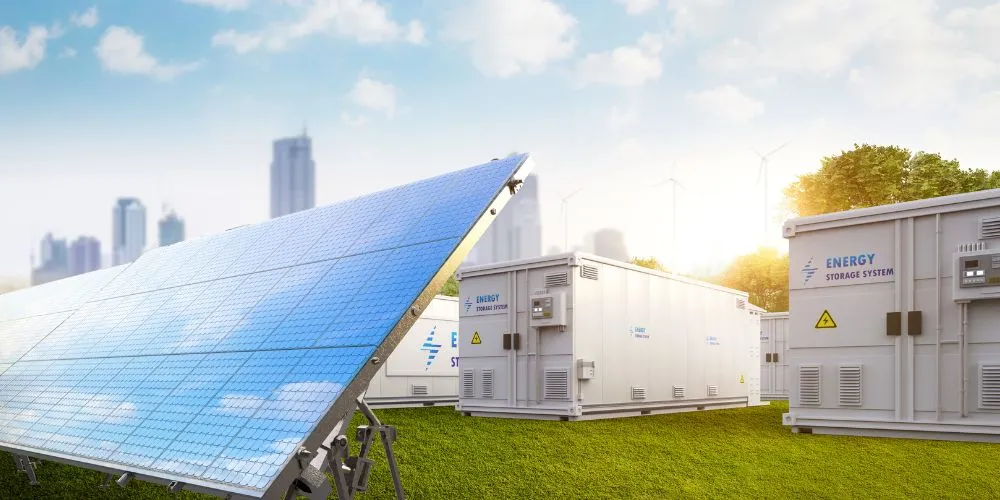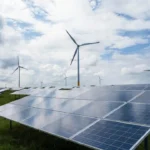Industrial energy storage has become a cornerstone of modern energy management strategies, enhancing sustainability, reliability, and efficiency in diverse industrial sectors. In an era where energy security and environmental responsibility are paramount, deploying advanced energy storage solutions is transforming industrial operations. This comprehensive exploration delves into industrial energy storage, revealing its significance, applications, and transformative potential in fostering a more sustainable and resilient industrial landscape.
The Significance of Industrial Energy Storage
Industrial energy storage represents a pivotal shift in how industries manage energy needs. It enables businesses to optimize energy usage, reduce costs, and enhance their environmental footprint, fostering sustainability and resilience.
Energy Resilience and Reliability
The most immediate and tangible benefit of industrial energy storage is its role in ensuring energy resilience and reliability. Industries, particularly those engaged in energy-intensive processes like manufacturing and data centers, rely heavily on uninterrupted power supply. Energy storage systems provide a failsafe mechanism, offering backup power during grid outages or fluctuations, mitigating downtime, preventing data loss, and averting substantial financial losses.
Demand Management and Peak Shaving
Energy storage solutions empower industries to exercise precise control over their electricity demand, a capability that proves invaluable in cost reduction and grid support. By strategically storing excess energy during off-peak hours and intelligently deploying it during peak demand periods, businesses can significantly lower their electricity bills and simultaneously alleviate the strain on the grid, contributing to grid stability.
Integration of Renewable Energy
The deployment of energy storage makes the seamless integration of renewable energy sources into industrial operations a reality. Excess energy from solar panels, wind turbines, or other renewable sources can be efficiently stored and utilized when needed, ensuring a consistent power supply. This reduces reliance on fossil fuels and aligns industrial operations with sustainability objectives.
Technologies in Industrial Energy Storage
Many technologies and approaches are harnessed to meet industrial facilities’ diverse and often stringent energy storage needs.
Battery Energy Storage Systems (BESS)
Battery Energy Storage Systems featuring advanced technologies, like lithium-ion batteries, are versatile and widely adopted for industrial energy storage. They offer a high energy density, rapid response times, and scalability to meet the energy demands of diverse industries. The flexibility of BESS allows businesses to fine-tune their energy management strategies.
Flywheel Energy Storage
Flywheel energy storage systems operate on the principle of storing energy as kinetic energy. These systems are characterized by their rapid response times and are particularly well-suited for applications requiring high-power output and short-duration energy storage. They find utility in uninterruptible power supplies (UPS) for data centers, where the swift transition to backup power is critical.
Thermal Energy Storage
Thermal energy storage systems represent an alternative facet of industrial energy storage. They store and release energy in heat, making them suitable for various applications, including district heating, industrial cooling, and concentrating solar power plants. By efficiently managing thermal energy, industries can optimize their processes and reduce energy consumption.
Applications of Industrial Energy Storage
Industrial energy storage exhibits versatility through various applications across diverse industrial sectors, each reaping tangible energy management and reliability benefits.
Manufacturing
Within the manufacturing sector, industrial energy storage plays a pivotal role in optimizing energy demand, streamlining processes, and reducing operational costs. Manufacturing facilities, often energy-intensive, rely on a continuous power supply. Energy storage systems ensure uninterrupted operations, safeguard the production processes, and prevent costly downtime.
Data Centers
Data centers, the backbone of the digital age, are acutely dependent on uninterrupted power supply. Any interruption can result in data loss, operational disruptions, and substantial financial losses. Industrial energy storage systems are reliable backup power sources during grid outages or fluctuations, ensuring data center operations remain unaffected and data integrity is preserved.
Renewable Energy Integration
Industries leveraging renewable energy sources, such as wind farms and solar installations, harness industrial energy storage to store surplus energy. This surplus energy, generated during high renewable energy output periods, can be stored and later deployed during low or no-energy generation periods, ensuring a consistent and reliable power supply.
Grid Support
Industrial energy storage systems actively participate in grid support services, contributing to grid stability and reducing strain on power infrastructure. These systems can provide ancillary services such as frequency regulation, ensuring the grid operates smoothly and efficiently.
Challenges and Ethical Considerations
While promising, the deployment of industrial energy storage is accompanied by a series of challenges and ethical considerations that warrant careful deliberation.
Environmental Impact
As industries strive to enhance sustainability through energy storage, evaluating the environmental impact associated with manufacturing, deploying, and disposing of energy storage technologies is imperative. Comprehensive life cycle assessments are indispensable in minimizing the overall environmental footprint.
Resource Availability
The availability of critical materials, such as lithium for batteries, raises concerns regarding resource scarcity and equitable access. To secure a sustainable supply chain, industries must navigate resource challenges while promoting equitable access to energy storage technologies.
Technological Equity
The pursuit of technological equity is paramount. It ensures that the benefits of advanced energy storage technologies are accessible to businesses of all sizes and regions, including smaller enterprises and developing areas. Bridging the technological divide is essential for fostering inclusive economic growth and sustainability.
The Future of Industrial Energy Storage
The future of industrial energy storage holds immense promise, with ongoing advancements poised to enhance sustainability and resilience in industrial operations.
Advanced Battery Technologies
Research and development efforts in advanced battery technologies continue unabated, focusing on improving performance, safety, and sustainability. Solid-state batteries promise higher energy densities, enhanced safety profiles, and reduced environmental impact.
Energy Storage as a Service (ESaaS)
The concept of Energy Storage as a Service (ESaaS) is gaining traction, democratizing access to industrial energy storage solutions. This model allows businesses to access and benefit from energy storage without incurring substantial upfront investments, thereby democratizing access to energy resilience and efficiency.
Decentralized Energy Systems
The ascent of decentralized energy systems, including microgrids and distributed generation, hinges upon the effective integration of industrial energy storage. These systems empower industries to optimize local energy production and consumption, fostering energy independence and grid resilience.
Conclusion
Industrial energy storage transcends mere technological advancement; it catalyzes sustainability, reliability, and resilience in industrial operations. Its significance is underscored by its ability to ensure uninterrupted energy supply, reduce costs, and enhance environmental responsibility. As industries navigate the path to a sustainable and resilient future, ethical considerations, resource availability, and technological equity must serve as guiding principles.
It envisages a future where industries harness energy with unprecedented efficiency, ensuring resilience in the face of challenges and contributing to a more sustainable and prosperous industrial landscape. Industrial energy storage is a guiding beacon, illuminating sustainability and reliability reign supreme, powering industries toward a brighter tomorrow.





